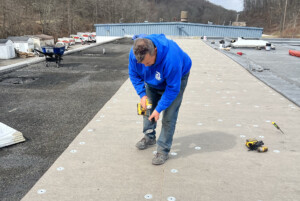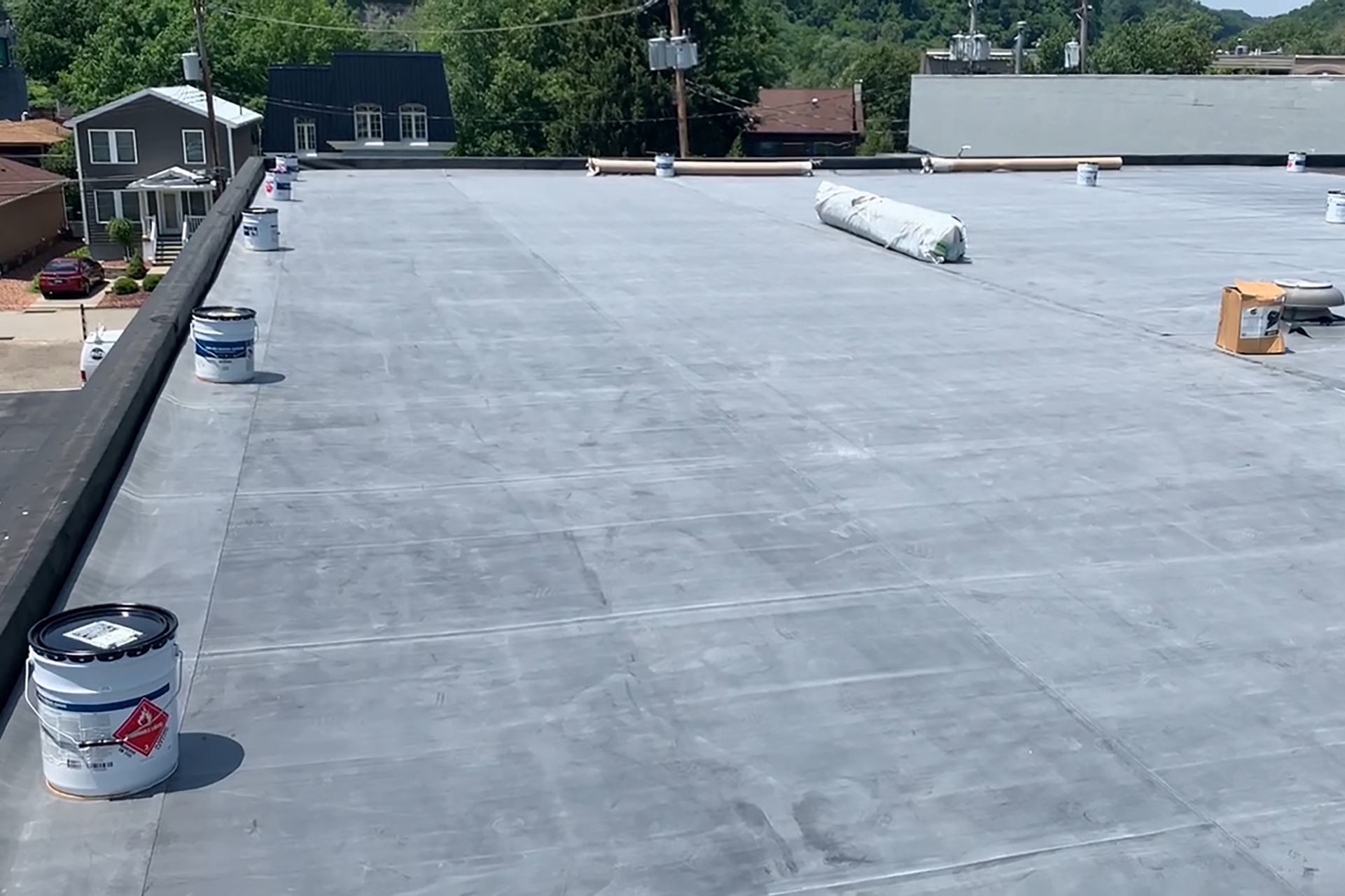A high-quality roof is an essential component of any commercial building. It has several functions, including
Protection from the elements: A commercial building roof serves as the first line of defense against the elements, including rain, wind, snow, and extreme temperatures. A properly installed and maintained roof can help keep the interior of the building dry and comfortable, protecting occupants and equipment from water damage and mold growth.
Energy efficiency: A roof can also play an important role in the energy efficiency of a commercial building. By providing insulation and ventilation, a roof can help regulate the temperature of the building, reducing energy consumption and lowering utility bills.
Structural support: A commercial building roof can also provide structural support, helping to distribute the weight of the building evenly and preventing structural damage or collapse.
Aesthetics: A well-designed commercial building roof can enhance the overall aesthetic of the building, making it more attractive and visually appealing to customers, employees, and visitors.
Property value: A high-quality commercial building roof can increase the overall value of the property, providing a sound investment for building owners and stakeholders.
Maintaining a high-quality roof is critical to ensuring the longevity and functionality of your building and business.

Commercial roofing systems are typically designed to be more durable and longer-lasting than residential roofing systems, as they are exposed to more wear and tear and weather conditions. They must also meet specific local and national building codes and regulations.
In addition to commercial buildings with shingle roofing, there are several types of flat commercial roofing systems, including:
Built-up roofing (BUR): a traditional roofing system made of layers of hot tar and gravel.
Single-ply roofing: a type of roofing system that uses a single layer of membrane material, such as EPDM or TPO, to cover the roof.
Metal roofing: a roofing system made of metal panels or shingles, often used in industrial and agricultural buildings.
Modified bitumen roofing: a type of roofing system made of asphalt and reinforced with polyester or fiberglass.
Spray foam roofing: a type of roofing system that is sprayed onto the roof as a liquid, which then expands to create a solid, waterproof layer.
Commercial roofing systems are installed by specialized roofing contractors, who are experienced in working with large-scale roofs and understand the unique requirements of commercial buildings. Mario Contracting has nearly 30 years of experience in installing, maintaining, and repairing commercial roofs. Call Mario for your commercial roofing needs!
Commercial roofing systems are typically designed to be more durable and longer-lasting than residential roofing systems, as they are exposed to more wear and tear and weather conditions.
Mario Justa, Mario Contracting

